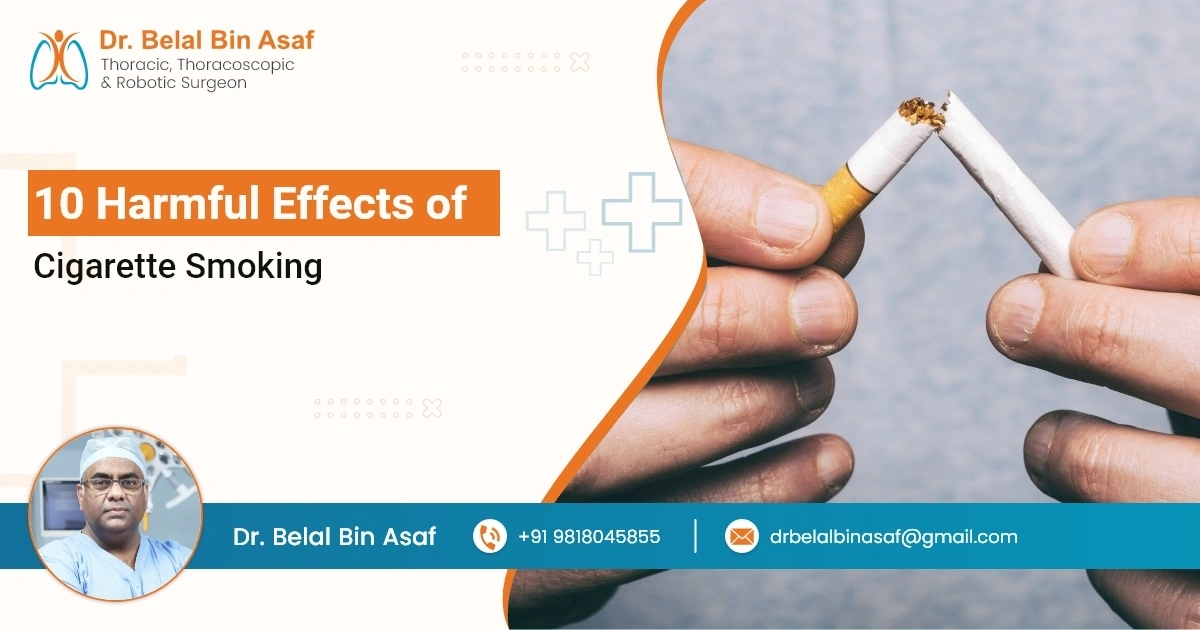Cigarette smoking has long been a pervasive habit, deeply embedded in cultures worldwide. Despite the common knowledge of its dangers, millions of people continue to smoke, often underestimating the severe health risks associated with this habit. Cigarette smoking affects nearly every organ in the body and is one of the leading causes of preventable diseases and deaths globally. This blog will delve into 10 harmful effects of cigarette smoking, highlighting why quitting smoking is essential for a healthier life.
Contents
- 1 Lung Damage and Respiratory Diseases
- 2 Heart Disease and Stroke
- 3 Increased Risk of Cancer
- 4 Weakening of the Immune System
- 5 Impact on Reproductive Health
- 6 Premature Aging and Skin Damage
- 7 Dental Problems and Bad Breath
- 8 Negative Effects on Mental Health
- 9 Harm to Others Through Secondhand Smoke
- 10 Financial and Social Consequences
- 11 Conclusion
Lung Damage and Respiratory Diseases
One of the most well-known effects of smoking is the damage it causes to the lungs. Cigarette smoke contains harmful chemicals that irritate and inflame the airways, leading to chronic respiratory issues such as:
- Chronic Obstructive Pulmonary Disease (COPD): This condition includes emphysema and chronic bronchitis, causing difficulty breathing and reduced lung function.
- Lung Cancer: Smoking is the leading cause of lung cancer, responsible for nearly 85% of cases worldwide.
The toxic substances in cigarette smoke damage lung tissue over time, reducing the lungs’ capacity to function effectively.
Heart Disease and Stroke
Smoking significantly increases the risk of cardiovascular diseases. The chemicals in tobacco smoke damage blood vessels, leading to:














 +91-9818045855
+91-9818045855
